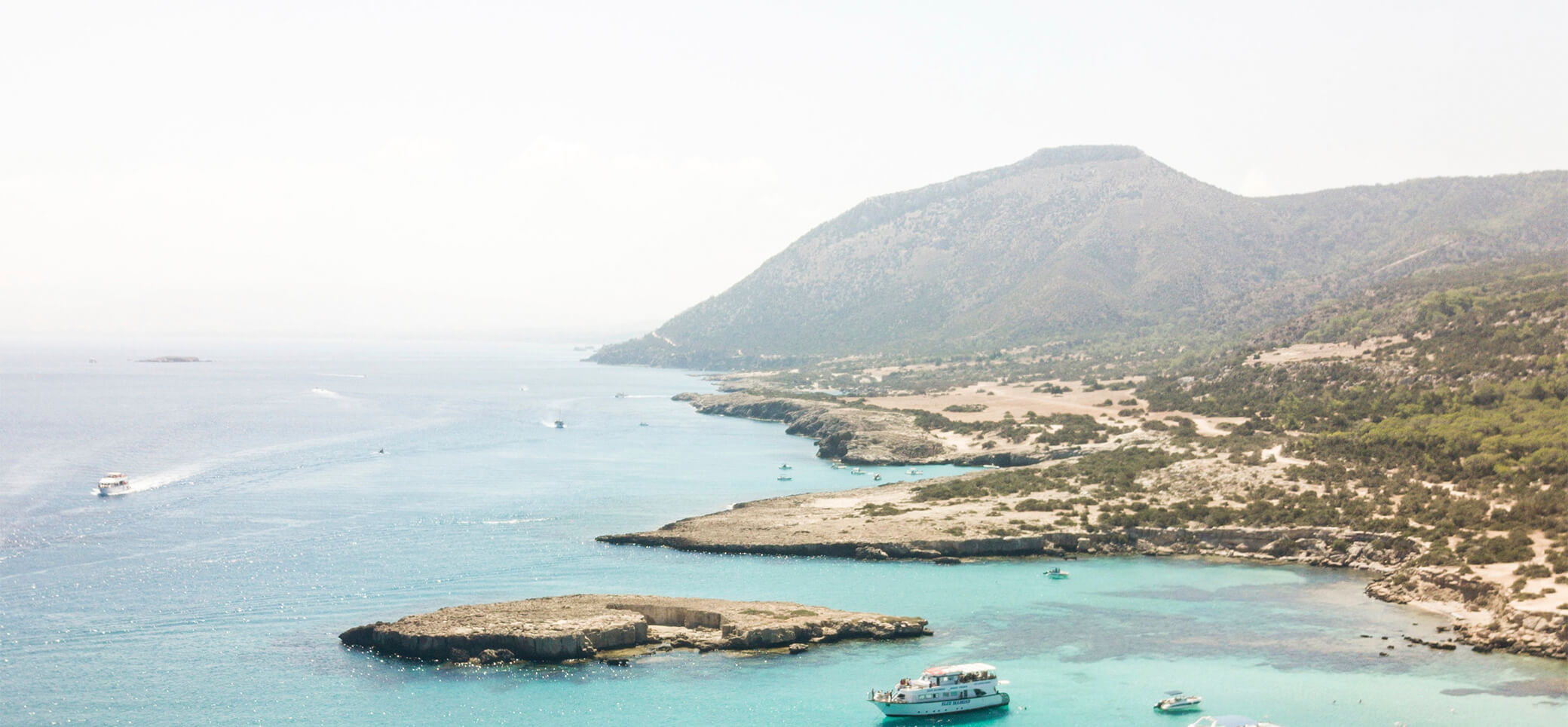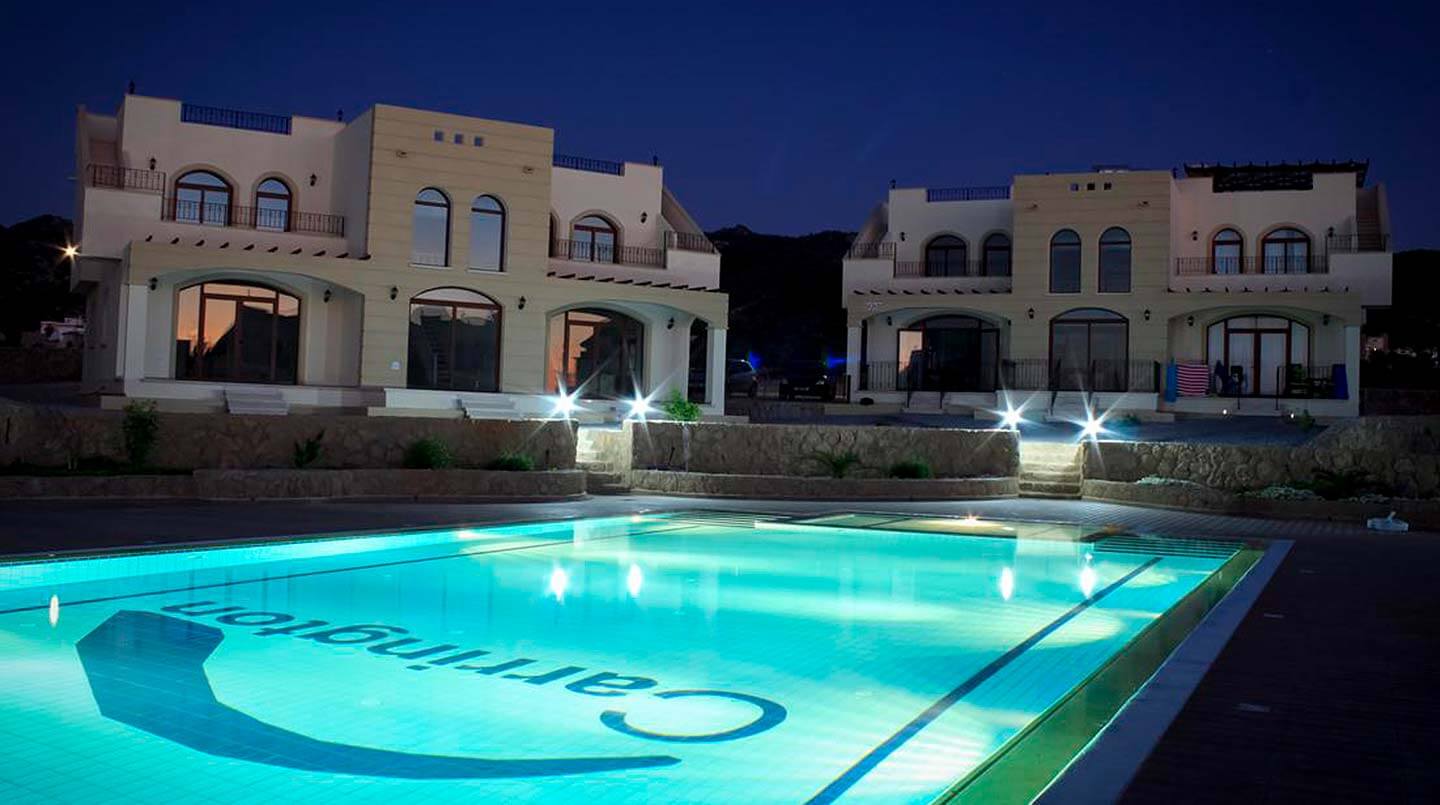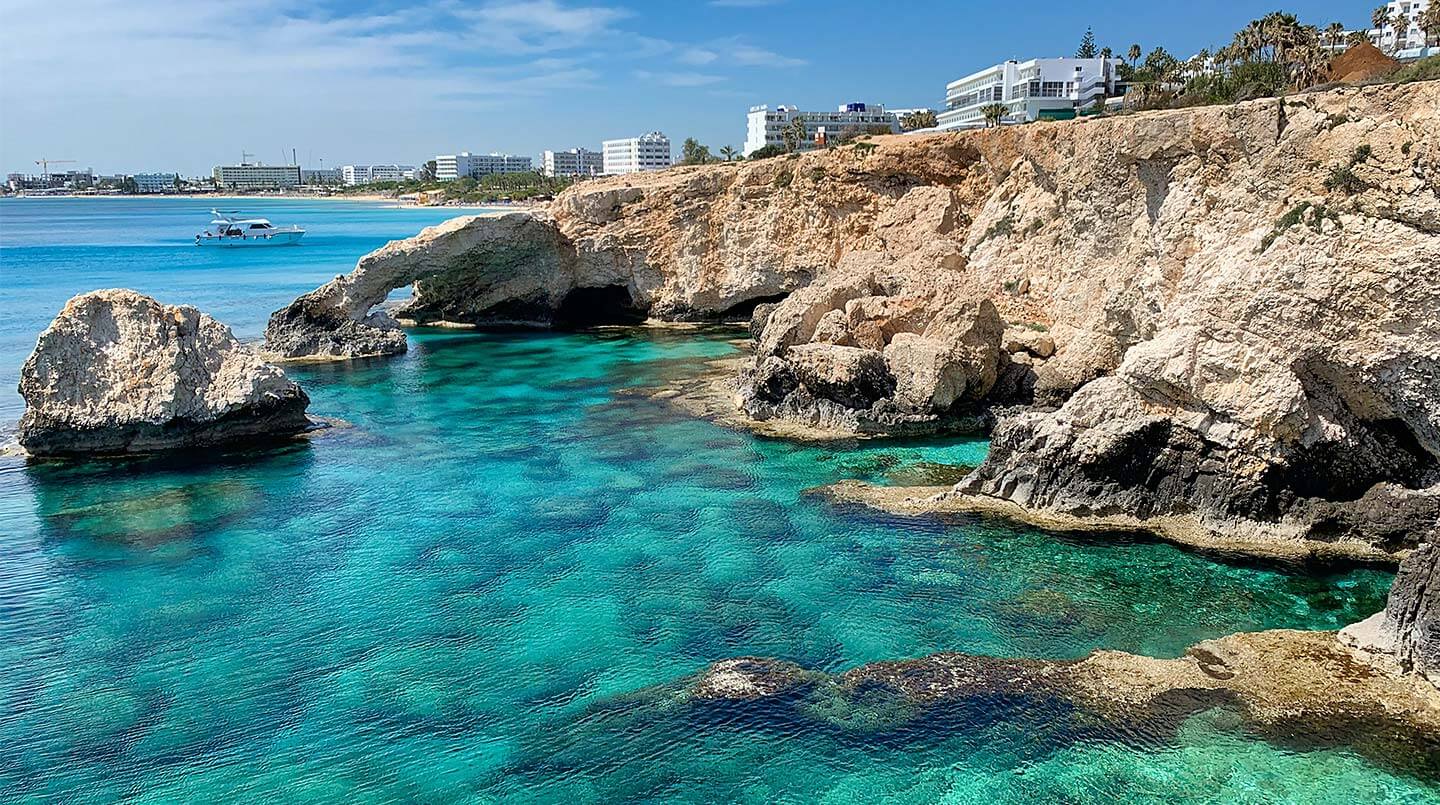
Buying a property in the Turkish Republice of Northern Cyprus
Buying property in TRNC can be complicated and strenuous for those who are not familiar with the law and legal procedure. With us, buying a property will be easy.
TAXES IN RELATION TO PROPERTY PURCHASE
V.A.T
The Tax Office requires a copy of the Contract of Sale to be presented prior to the transfer of title. It will then calculate the VAT based on the Contract value of the property and is currently 5%.

Transfer Fee
Transfer Fees payable to the Land Registry Office just before the transfer of title takes place is usually paid by the purchaser and has currently been reduced from 6% to 3% of the property assessed value. The Land Registry will view the Contract of Sale before the transfer of title to assess the value of the property and will calculate the Transfer Fee on the basis of the assessed value.

Stamp Duty
Stamp Duty which is payable to the Tax Office and is calculated on the contract value of the property. Generally, Stamp Duty is payable by the Purchaser, although this can always be varied by the parties by an express clause in the Contract of Sale. All Contract of Sale must be registered at the District Land Office within 21 days of being signed and it is now compulsory for the Stamp Duty to be paid at the rate of 0.5% before registration can take place.

Capital Gain Tax
Capital Gain Tax (Stopaj) is to be paid by the seller and is payable to the Tax Office is generally payable by the Vendor although this can always be varied by the parties by an express clause in the Contract of Sale. The Tax Office requires a copy of the Contract of Sale to be presented prior to the transfer of title. It will then calculate the Capital Gains Tax based on the basis of the assessed value of the property and is currently 4%.

THE PURCHASE PROCESS
Deciding to buy a property in Northern Cyprus is an exciting and potentially life-changing decision. Whilst there are some differences from buying a prop-erty back home, it’s not complicated once you understand the process. This guide should provide a good introduction to the steps you need to take towards owning your own property in Northern Cyprus.

Finance
There are a number of ways to finance a property purchase in Northern Cyprus– as a developer we offer long term payment plans to suit your budget. These are usually interest free or a combination of interest free with interest depend-ing on the length of the repayment plan. We recommend all our customers who are thinking of buying a new property to set up a plan and do some calcula-tions of how you will finance the property before you start looking.
In case you are applying for a mortgage we recommend applying for an offer to find out your budget and what your options are. One option is to apply for a mortgage in a Cypriot bank, where you can usually get a mortgage for up to 70–75% of the property. Another option is to mortgage your existing home through your own bank

Hiring a legal representative
The legal representative will help you throughout the purchase process and will be responsible for informing you about the buying process. The solicitor will also provide you with all documents relating to fees and taxes as well as the process to transfer the title deed into your name. If you are abroad during the process you should grant the solicitor a Power of Attorney to act on your be-half. The cost of hiring a lawyer varies between £1,250 and £2,000 and is paid by the buyer

Reservation contract
Once you have found your property, you reserve the it by signing a reservation contract and pay a reservation cost of usually between £2,500– £10,000. This transfer will be made into your lawyers client account and not to the vendor. When the transfer has been done, the property is off the market and your lawyer starts with the due diligence to make sure everything is in order with your new home. If you have applied for a mortgage, a valuation of the property will be done and the bank will finish your mortgage.

Purchase contract
If everything is in order with the property, it’s time to sign the purchase con-tract. This is usually done about 14 days after the reservation contract. When both vendor and buyer sign the purchase contract, 30% of the agreed price of the property (minus the reservation cost) is transferred to the lawyer’s client account, and the lawyer confirms the transfer to the vendor. The agreed date of access is written in the purchase contract.

Access
The day of your access to the property, everyone meet at the notary to finish the purchase. By this time, all eventual mortgage of the vendor are removed from the property and the registration in the title deed is made. The 10% at the lawyers client account and the 90% that’s left of the agreed price is transferred to the vendor. The keys to the property are handed over and you got a new home

To buy off-plan
Buying off-plan is a bit different from buying a resale property. At all the new developments, it’s the developer of the property who becomes the vendor. The developer will provide you with all information about the development such as when it’s going to be built, finished and when the access of the properties will take place.
There are renders, site plans and floor plans of the development to give you a clear picture how the result will look like. The developer will also show you the plot of the development and show you where your property is located. You get to see materials and depending of how far the building process has gone, you might be able to make some changes on the inside of the property to make it suit your needs and taste.
The payment plan of buying a new development depends but usually a reser-vation cost of £2,500-10,000 will be paid to take the property off the market. The deposit amount will be deducted from the sales price. The remaining amount will be paid in four or five stages during the construction, whereas the first one is on contract signing and the last payment upon handover of the property.
When you buy a property off-plan or that is under construction, the lawyer pro-vides a written guarantee in the agreement by both a date for completion ac-cording to building permits, drawings, etc., as well as a penalty/delay for the builder in favour of the buyer. Your application to the Council of Ministers re-garding your Permission to Purchase will be submitted by your lawyer. For this, the lawyer requires an unopened extract from the criminal Records (in English) from your home country’s police authority, which shows that you have no crim-inal past.
The application process may take time to be approved but this does not affect you from moving into the property, renting it out or reselling it. When your ap-plication for a purchase permit is processed, the Council of Ministers makes searches in the land register, the military and the immigration authorities. If the result is positive, your application will be granted.
Frequently asked questions
I am not a citizen of the TRNC, but I want to purchase two properties in the TRNC. How can I do this?
You can sign the contract of sale for the two properties in your name; however, you can only apply for purchase permission for and take title to one property. Therefore, you will need to find a nominee (this person should be a friend or relative or someone you know and trust) to take a title to the property and hold the property on trust for you or you will need to set up a TRNC company. Please ask your Solicitor for more detailed advice on trust and companies.
Can my spouse and I purchase one property each?
No. Husband and wife are counted as one household and the current property restrictions are one property per household.
How long will the purchase permission process take and what does it involve?
This process can take some time-current estimations are around two years. The process involves searches being taken from the Land Registry, the Immigration, and the Military. Please note that in order to apply for permission to purchase you will need to produce a Criminal Record Bureau Disclosure Report from your country.
Do I need to wait for my purchase permission before I can move into my property?
No. Once your property is completed, you will be able to take possession of your property and move in. Once the contracts are exchanged between the partied and registered at the Land Registry you will then acquire beneficial interest and contractual rights of the property. Registering the contract ensures that you are protected from the property being sold or transferred to a third party and from any subsequent liens being placed on the property.
Can I sell my property before I obtain my purchase permission?
This depends on the terms of your contract sale. Your Solicitor will always try to negotiate with the vendor to insert a clause allowing you to sell the property before taking the title. Solicitor simply prepares an assignment of contract to be signed between you, the vendor, and the new purchasers assigning all of your rights and obligations under the contract to the new purchaser.
What taxes are payable on the purchase and when are these payable?
Taxes, apart from stamp duty which is payable 21 days of the date of the Contract, are usually payable right at the end of the transaction after your purchase permit has been granted and the title deeds are being transferred into your name. However, some vendors require VAT to be paid on the sale price at the date of delivery of possession of the property.
What are the tax rates?
The rates of taxes are the following: Land Registry Transfer Fee-3%, VAT-5%, Stamp Duty-0.5%
How to get residency in the turkish republic of northern cyprus?
Because laws and regulations of the European Union are not applied in the TRNC; European Union citizens still have to follow the residency procedure in the same way as other nationals. There is no automatic right to reside and work in the TRNC for EU Citizens.
Whenever a person enters the TRNC, their passport is stamped at the port of entry and this entitles that person to remain in the TRNC for the period of time stated on the tourist visa (usually three months) without working. On the expiry of this period, that person must leave the TRNC or face heavy fines for exceeding Turkey, thereby obtaining a further tourist visa, For those people who wish to stay in the TRNC for a longer period than the period of tourist visa, a residency permit must be obtained. To obtain this, the first port of call is the local police station’s immigration department. You will need to produce to the police the following documents:
Passport original and photocopy
If you have the title deeds to property in your name, the title deeds (original) and photocopy. If you have purchased a property under Contract of Sale, but have not yet received the title deeds to the property, the Contracts of Sale (original) and photocopy. If you are living in rented accommodation the Tenancy Agreement (original) and photocopy.
A letter from your local village chief (Muhtar as they are known in Turkish) to say that you reside in his village. This letter is called Ikametgah Belgesi in Turkish. You can usually find your Muhtar in the center of the village where you live near to the local municipality (belediye in Turkish) building or the post office.
Bank documents showing that you have a TRNC bank account which has sufficient funds or a regular income to enable you to support yourself in the TRNC without working.
2 passport photographs
6 TL stamps (Damga Pulu in Turkish) (the amount required is constantly changing, so you should make a selection of stamps with you in case of further stamps are required).
The police will then refer you to the Lefkosa State Hospital, or now there are certain clinics that are licensed to carry out this work, for a health test. The test will check for infectious diseases such as HIV, hepatitis, and TB. After you have had the health test, you will collect results and take them unopened to the immigration office in Lefkosa for the residency permit to be stamped in your passport. The immigration office is called the Muhaceret Dairesi in Turkish.
It is important to note that the residency permit only entitles you to live in the TRNC. It does not entitle you to work or to set up a business in the TRNC. To do these things you will need either a work permit or a permit to set up a business. The residency permit is valid for a period of 1 year. It must be renewed every year by following the same procedure (except for the hospital check).
Please note that children under the age of 18 years do not require residency permits. This is only applicable to adults. Therefore, families moving to the TRNC only need to apply for residency for the adult members of the family. Non-citizens who give birth to a child in the TRNC will need to notify the embassy or consulate of their country of origin of the birth of the child and once this has been done and a letter to this effect has been obtained from the embassy or consulate, they will need to apply to the District Office (Kaymakamlik in Turkish) in the area in which they live to register child’s birth.
Becoming a citizen of the TRNC is more complex. Citizenship is granted to all persons whose mother or father is a Turkish Cypriot or to those married to a Turkish Cypriot. At the moment, there is a new law in Parliament to allow foreign nationals to become citizens of the TRNC after 10 years of residence in the TRNC.













